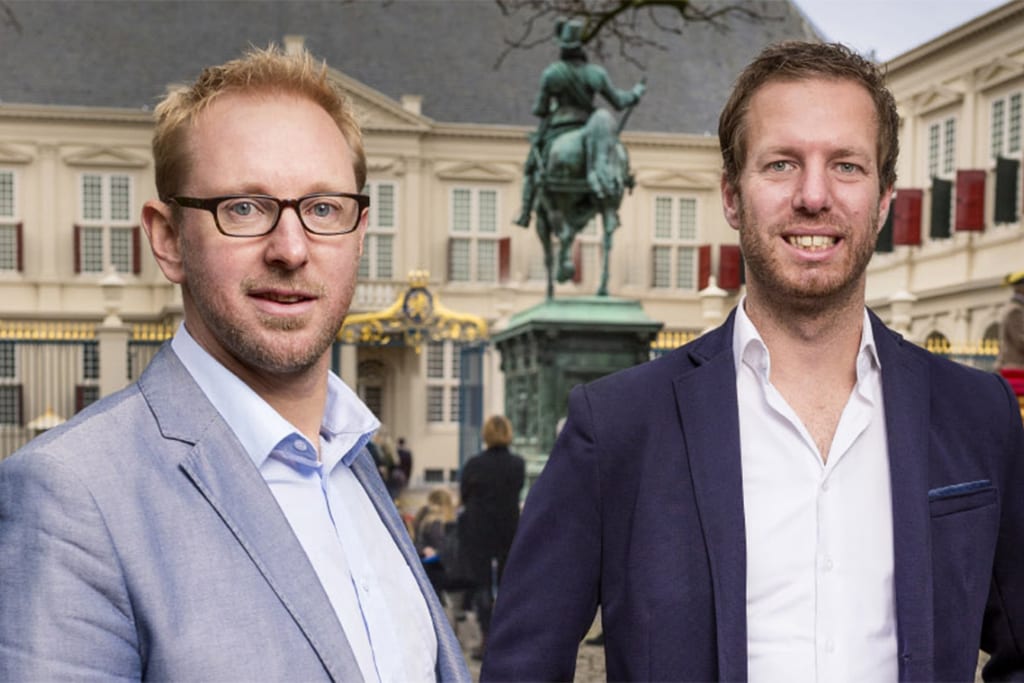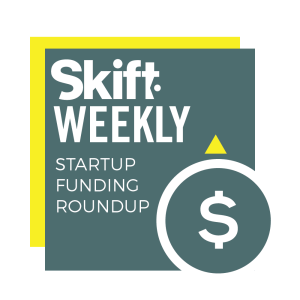Bidroom Raises $17 Million for Its Hotel Booking Platform: Travel Startup Funding This Week

Skift Take

Travel Startup Funding This Week
Each week we round up travel startups that have recently received or announced funding. Please email Travel Tech Reporter Justin Dawes at jd@skift.com if you have funding news.This week travel startups announced more than $218 million in funding.
Earlier this week, we reported that Plusgrade, a travel upselling tech company, had received a $150 million investment from Canadian pension fund manager Caisse de Dépôt et Placement du Québec (CPDQ).
Also earlier this week, Skift's Raini Hamdi reported that HolidayMe had raised a $16 million Series C funding round, led by Gobi Partners, to unlock Asia’s Muslim travel market.
>>Bidroom, a hotel booking platform, said it had raised $17 million (€15 million) in a Series A round of fundraising.
The family offices of several private investors primarily participated in the round. The Amsterdam-headquartered company has raised about $24 million (€21 million) to date.
Bidroom attempts to stand apart from traditional online travel agencies as a cheaper distribution channel for hotels. The startup doesn't charge the hotel a commission on the rate but instead charges consumers an annual membership fee.
That said, it typically hits hotels with an "activation fee" of about $340 (€299) and then, after it has proven its effectiveness at putting heads in beds, adds more charges.
More than 120,000 hotels participate. All bookings go through Bidroom instead of affiliate program inventory. We suppose that the company's fee structure will be subject to change as it grows and expands into new markets.
The company, which was one of Skift's Top Startups to Watch in 2018, has 55 employees but will expand to 200 employees within the next year after the company moves employees into a larger office in Kraków next spring.
Bidroom, founded in 2014, has been benefiting from an exclusive partnership with Visa, which promotes the startup's hotel offerings to some of the holders of its partner credit cards, the company's co-founders explained during an interview at Skift Global Forum New York.
>>Festicket, a music festival booking portal, said it had raised $10.5 million in a Series D round.
Beringea led the round. Jaguar Land Rover's InMotion Ventures, Channel 4's Commercial Growth Fund, Lepe Partners, U-Start, and ex-Spinnin' Records CEO Eelko Van Kooten also participated.
Festicket has raised $20.6 million in external funding to date.
The startup lets consumers book tickets and travel packages to more than 1,200 music festivals worldwide. It has 129 full-time workers in offices in London, San Francisco, Amsterdam, Berlin, and Porto, Portugal.
It claimed to have served more than 2 million travelers and live-music fans since its founding in 2013.
In the UK alone, the music tourism industry has grown from about $3 billion (£2.2 billion) in 2012 to more than $5 billion (£4 billion) in 2017, according to a report by promotional body UK Music.
In July 2018 Festicket launched Festival Finder, an integration with music streaming service Spotify that helps find festivals through user listening habits.
>>GlobalTix, a booking platform for tours and activities based in Singapore, said it had raised about $9 million ($12.5 million Singapore dollars) in an extension to its Series A round of funding, which had previously raised $2 million.
Tin Men Capital, a Singapore-based venture capital firm, is the sole investor in this extension.
Launched as a service in 2014 by brothers Chan Chee Chong and Chan Chee Kong, GlobalTix links tourist attractions across Asia, such as Universal Studios Singapore, Sentosa 4D Adventureland, and Singapore Zoo, with online and offline travel agents worldwide. In the past year, it has processed $75 million worth of transactions, it said.
Tin Men co-founder Jeremy Tan said the capital would help GlobalTix, which has bout 30 full-time employees today, expand across Southeast Asia, the broader Asia Pacific region, and beyond. The startup already has offices in Singapore, Indonesia, Thailand, and the Philippines.
>>Zizoo, a yacht charter platforms, said it had closed a $7.3 million (€6.5 million) Series A financing round.
Revo Capital led the round. Coparion, Check24 Ventures, and Push Ventures also participated, joining returning investors, such as MairDumont Ventures, AWS Founders Fund, Axel Springer Digital Ventures, and Russmedia International.
The Berlin-based Zizoo, which launched three years ago, has raised $12 million in total to date.
Zizoo has tried to rock the boat industry by helping consumers book rentals for more than 21,000 vessels in 30 countries. CEO Anna Banicevic said 85 percent of her company's customers are first-time boaters.
Banicevic credited her company's traction to its having kept costs down thanks in part to direct supplier partnerships. While the company does some have peer-to-peer or private boat owners, the majority of its inventory is from charter companies, she said.
The startup has 60 employees and plans to hire 40 more during the next year. Banicevic plans to expand Zizoo's inventory to include river cruises, mini-cruises, and other nautically-themed experiences.
Earlier this month, Samboat, the Bordeaux startup that takes an Airbnb-style approach to boat rental, sold itself to Dream Yacht Charter, one of the largest players in the sector, with a claimed 130,000 customers a year interested in its fleet of about 1,000 sailboats and catamarans.
>>Hotel Effectiveness, the provider of a hotel labor management software solution, said it had received an unspecified investment of "multiple millions" of dollars.
Growth Street Partners led the round.
Del Ross, the chief revenue officer of Hotel Effectiveness, said this funding had been the only external capital the company has raised to date.
Ross described the 30-employee company, based in Roswell, Georgia, as profitable. He said 2,000 hotels across more than 70 hotel brands use its system, out of an estimated 52,000 hotels in North America.
The company has competitors, including Unifocus, a multi-industry labor management solution provider), and on-property Excel spreadsheets used by department managers to scheduled workforce shifts.
Businesses such as Alice, Amadeus Hospitality's HotSOS, Quore, and Knowcross, primarily help hotels manage service tickets and dispatch requests. In contrast, Hotel Effectiveness focuses on labor cost optimization, such as managing scheduling efficiencies.
>>Loisirs Enchères, an auction site for vacations and activities, said it had raised $4.5 million (€4 million) Series A round.
Bpifrance’s Fonds Ambition Numérique, GSO Innovation. and the Crédit Agricole Aquitaine Expansion Fund participated. Loisirs Enchères previously raised $1.4 million (€1.2 million) in September 2017.
Launched in 2014 in Bordeaux, the company claimed that it today has 650,000 users. It has about 30 employees and plans to double that in the next year, said CEO Frédéric Bonfils.
>>Bookaway, a ground travel booking platform, raised a seed investment round of $1 million. Angel investors were the primary investors.
The Tel Aviv-based company, which has 15 employees, said it had served hundreds of thousands of travelers since its founding last year. It helps travelers book train, ferry, and intercity bus service in mainly East Asian countries, often by bringing offline suppliers online.
It also aims to stand out from rivals by providing consumers with trip-related information, such as the visa requirements for a bus ride between Thailand and Cambodia. It may face competition from bus aggregators such as BusBud, BusRadar, CheckMyBus, GoEuro, and Wanderu.
CEO and Founder Noam Toister founded Bookaway in 2017 along with CTO Jonathan Bensaid and two former vice-presidents at wholesaler Hotelbeds. Toister said his company would use the funding to expand into markets in South America and Eastern Europe.
>>LokaLocal, a tours and activities platform focused on Southeast Asian markets, has raised an undisclosed seed funding round.
BonAngels Venture Partners led the round, which placed a $1.5 million valuation on the startup.
CEO Chin Yoon Khen founded the Malaysia-based company in 2016.
>>VAWAA, or Vacation With an Artist, which offers travelers a mini-apprenticeship with a curated master artist or craftsman in locations worldwide, has raised seed funding of an undisclosed amount.
Hugo Burge, the former CEO of Momondo Group, made a personal investment as an angel, rather than via the venture funds he is associated with, said CEO Geetika Agrawal.
The company has three full-time employees.
Skift Cheat Sheet:
We define a startup as a company formed to test and build a repeatable and scalable business model. Few companies meet that definition. The rare ones that do often attract venture capital. Their funding rounds come in waves.
Seed capital is money used to start a business, often led by angel investors and friends or family.
Series A financing is typically drawn from venture capitalists. The round aims to help a startup's founders make sure that their product is something that customers truly want to buy.
Series B financing is mainly about venture capitalist firms helping a company grow faster, or scale up. These fundraising rounds can assist with recruiting skilled workers and developing cost-effective marketing.
Series C financing is ordinarily about helping a company expand, such as through acquisitions. In addition to VCs, hedge funds, investment banks, and private equity firms often participate.
Series D, E and beyond These mainly mature businesses and the funding round may help a company prepare to go public or be acquired. A variety of types of private investors might participate.
Check out our previous startup funding roundups, here. And also: Skift’s Top Travel Startups to Watch 2018.





